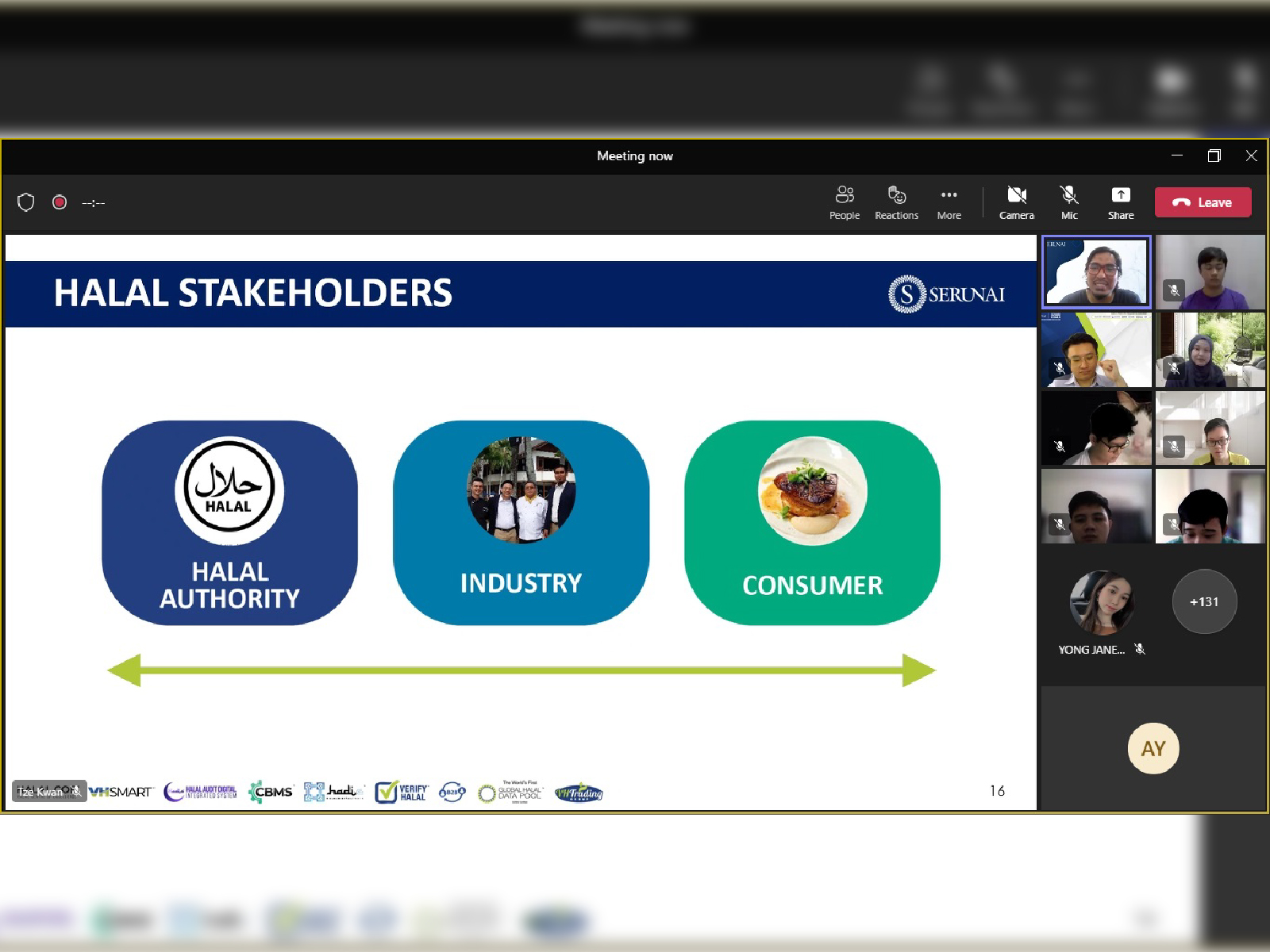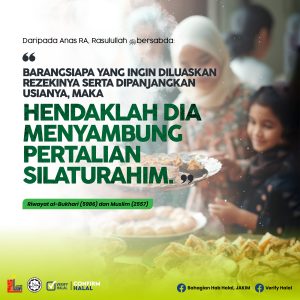UTAR Centre for Entrepreneurial Sustainability (CENTS) collaborated with UTAR Faculty of Accountancy and Management (FAM) and the Halal Centre of Excellence (Halal CoE) to organise a webinar titled Prospects and Opportunities of World Halal Market. The webinar took place on 13 July 2022 via Microsoft Teams, with Ustaz Mohd Jabal bin Abdul Rahim, the head of Halal CoE, invited to be the speaker. Meanwhile, moderating the webinar was UTAR FAM lecturer Fitriya binti Abdul Rahim.
The webinar was mainly aimed at raising awareness about the value of Halal and the opportunities that the Halal market provides. The talk began with Ustaz Jabal explaining the basic concept of Halal. He stated that it is an Arabic word which means “permitted” or “lawful”. On the other hand, its antonym, Haram is also an Arabic word which means “prohibited”. He then talked about the five universal objectives of Halal, which are the Protection of Deen, Life, Mind, Property and Lineage.
Speaking about halal products, Ustaz Jabal said, “When a product is deemed Halal, it means that it is using certified and proven Halal ingredients and materials. Once that has been achieved, the product must also be Thoyyiban, which means wholesomeness. To make a product Thoyyiban, the product must be Halal and the workers need to properly take care of the product during the processing and production phases. If not, it will lose its Thoyyiban.”
Ustaz Jabal moved on to talk about the development of Halal in the global industry. “The Halal logo is a symbol of trust, as it can help Muslims identify halal products easily, and fulfil their responsibility of consuming Halal products. Meanwhile, it helps non-Muslims especially in non-Muslim countries to identify a high-quality product, as the logo brings assurance of a quality product. This proves that Halal is universal as it can help both Muslims and non-Muslims,” said Ustaz Jabal. He also displayed a statistic which pointed out importers of Halal products are mostly from Muslim countries such as Indonesia and Pakistan, while, the exporters consist of non-Muslim countries like Brazil and Australia.
Ustaz Jabal pointed out, “When entering the Halal industry, a company usually prioritises a Muslim country, but a lot of these countries enforce strict Halal regulations, like Indonesia. This becomes a trade barrier, and it gets difficult to enter the country. Therefore, companies also have to look at non-Muslim countries with a high Muslim population like India and Russia.”
Speaking on the topic of the development of Halal in the global industry, Ustaz Jabal noted the three stakeholders involved in Halal certification; Authority, Industry players and consumers. “The Halalauthorities are in charge of controlling and regulating Halal implementations, issuing Halal certificates, and boosting the Halal industry. Meanwhile, industry players take the opportunity to cater to market demand and make Halal products based on market demand. The consumers are extremely important as they are the catalysts since they drive market demand and choose trusted halal products,” said Ustaz Jabal.
The final topic that Ustaz Jabal discussed was the Halal Trade Barriers. The Halal Trade Barriers are comprised of four barriers which include countries that recognise other Halal Certification Bodies (HCB), countries that recognise their own Halal certificate only, countries that only recognise HCBs with ISO 17065, and countries without any restrictions. He also mentioned five different issues pertaining to Halal, which included its definition, uncertain ingredients, fake logos, non-Halal ingredients and good manufacturing practices implementation (GMP).
The webinar ended with a short Q&A and photography session.







Like (0)